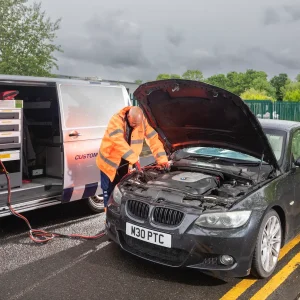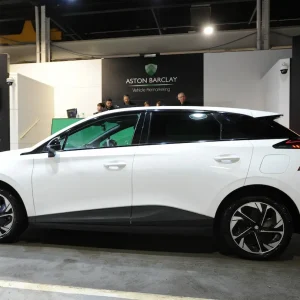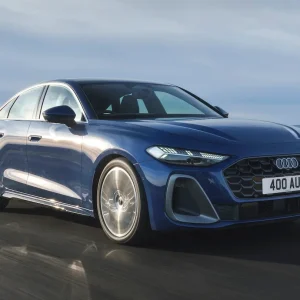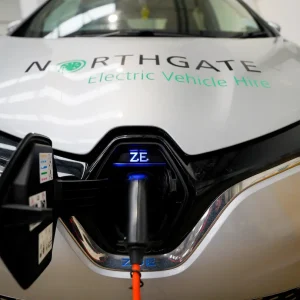Car-sharing company Zipcar announced late last month that it had signed an agreement with Croydon Council, stationing 23 vehicles at the council’s offices for staff use during the working week and public use outside of office hours.
It’s the biggest deal of its kind in the UK yet, and follows a pilot scheme where Zipcar claimed the council saved more than £500,000 annually on transport cost by switching from workers using their own cars to car sharing, where the 400 registered staff can book vehicles by the hour according to organisational need.
“It dawned on them the cars were only being used for 40 hours per week, and [they asked] if they needed to own them when they are only used for that time,” explained Zipcar for Business boss Andrew Edgar. “It reduces the amount of spaces needed, and the council has moved them to pay-and-display, so they’re generating revenue rather than being staff parking.”
“I can see great potential for it, it’s a genuinely sensible thing to do,” he continued. “It helps residents, as people living in the area now get 23 extra vehicles [for use out of hours], so they are more likely to get a vehicle when they need one, and it reduces the number of cars being used.”
Zipcar offers CO2 reporting and full audit capability, so businesses can see who is hiring vehicles, when, what it costs and what mileage they are doing.
“You can compare different people in the same job roles and ask why some do more miles than others,” said Edgar.
The council deal is something of a pioneer, and Edgar hopes it will be viewed as a template for other local authorities, but there are other ways businesses can and are using car-sharing as part of their business travel.
“Because our vehicle access is 24/7 and 365 days a year, it doesn’t matter if they need a car for three hours on a Sunday afternoon, and you don’t need to go to a depot or pay for longer than you need,” explained Edgar. “Most of our business is something between staff using their own vehicles and running a fleet – we can flex up or down as required.”
Zipcar currently operates in London, Bristol, Cambridge and Oxford, although 95% of the UK?business and usage is in the capital, and it also has operations in the US, Canada, Barcelona and Vienna, with a total of nearly 800,000 members worldwide.
Further examples of business use Edgar mentioned includes companies whose workers take the train if they have to come into one of the four cities Zipcar operates in, and then collect a car-share vehicle rather than hire a car, or take a taxi or public transport.
“If people are having to get a train, and then take a bus to the outskirts of Bristol, getting a car that’s already parked at Temple Meads station is more likely to get an endorsement from people on a business journey,” he says.
Other businesses, such as London-based firms including architects and engineers, use the company by getting public transport to the outskirts of the city, then collect a car to continue their journey to a site outside of London.
“The businesses we are targeting are those that are physically local to our vehicles, then we go for businesses that we know have an occasional need – those that are mostly office-based but occasionally need to go out to site,” said Edgar, who also pointed to relationships with commercial landlords where offices have parking issues.
“Lots of organisations are trying to use more public transport, reduce travel, cut the cost of renting parking spaces and reducing fixed costs,” he added.
Zipcar also operates a £75 driving-time voucher if one business refers another to the company, which Edgar said works well in shared buildings, and can also lead to positioning more vehicles in an area as demand increases, which is particularly useful for getting a greater choice of vehicles, including seven-seat people carriers and vans if required.
The firm has around 1500 cars in the UK, most of which are in London and 200 of which are VW Transporter vans. Zipcar sticks mainly with Volkswagen, although there are other makes such as Audi and Vauxhall, including four range-extender Amperas.
“We stick largely with the VW family because of the intuitive nature of how to drive one, as our members sometimes only drive once a month,” explained Edgar. “We researched the intuitive nature of vehicles and with VW it was the one that people were most happy to drive. It’s enough to get across the concept of car-sharing without having to explain the car too.”
Owned by Avis Budget Group, which bought Zipcar for $500m (£328m) at the beginning of this year, any Zipcar expansion is likely to come in conjunction with its new parent company, looking at locations where Avis already has a presence.
“What could make an impact will be the integration with Avis Budget Group, and the same for airport locations – if we can start to get more business travellers aware of this and generate interest,” Edgar explained. “Are there cities Avis is in that we could put Zipcar in, even on their premises? Are there any opportunities at train stations where they have an offer nearby? And are there any cities where neither operate but together a joint offering may stack up?
“Will there be expansion in the UK? Yes, but it is not imminent.”





